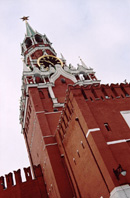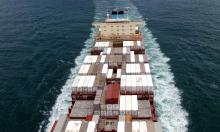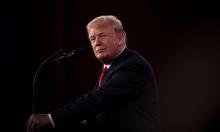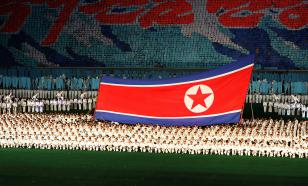Russia destined to prove G8's authority during its chairmanship in the club in 2006
The Russian administration will have to take serious efforts on the threshold of the next G8 summit, which will take place in Russia's St.Petersburg in 2006

Energy security and education will be listed as two major subjects for discussion during Russia's chairmanship in the Group of Eight in 2006. Great Britain will stop being the G8 chairing state at the end of the current year. It goes without saying that the ambitious program to help Africa's poorest states, which was passed at the recent summit in Scotland, has been pushed into the background because of the tragic events in London. The British Prime Minister, however, managed to convince G8 leaders in the necessity to accept his suggestions on Africa. Russia's contribution in the matter will be manifested in the continuing debt forgiveness to African states. 
The Russian administration will have to take serious efforts on the threshold of the next G8 summit, which will take place in Russia's St.Petersburg in 2006. The Kremlin will need to confirm Russia's right to chair the prestigious international club and prove the authority of the organization as well. Brushing the terrible attacks in the center of London aside, one may say that the summit in Gleneagles has had a rather good ending for Russia. However, the question of Russia's membership in the so-called financial Group of Seven is still open.
When the club of world leaders made a decision to welcome Russia and change its title from “Seven Plus One” to “The Group of Eight,” none of the world leaders could think that financial specialists would have a different opinion on the matter. When it turned out that finance ministers were not going to accept their Russian colleague in the club, then-President of the USA, Bill Clinton, asked US Treasury Secretary, Robert Rubin, to explain the reason of such a decision. Mr. Rubin told Clinton that they would have to establish the club of seven again, in another place and at another time, in the event a Russian minister for finances joined the group.
Aleksey Kudrin, the head of the Russian Ministry for Finances since 2000, has been repeatedly awarded the title of “the finance minister of the year” since that time. The Group of Seven, however, persistently refused to welcome another member. Traditionally, the financial Group of Seven gathers four times a year: twice in Washington, during the autumn and spring sessions of the IMF and the WB and twice in the country, which holds the G8 chairmanship. When the question of Russia's chairmanship was discussed, the ministers reportedly were going to hold the summit somewhere in Europe, but not in St.Petersburg or Moscow. Vladimir Putin's interference was necessary. The statement, which the Russian president released Friday, when the summit ended, implied that a positive result had not been achieved on the matter. Vladimir Putin showed a rather annoying reaction in his answer to a reporter's question about the hosting city of the summit: “Who is going to meet, when, with whom…all these speculations. Let it be Kenya, whatever,” Putin said.
Russia as the chairing state in the G8 will need to set forth its agenda for the financial part of the club as well. As a rule, the financial Group of Seven contacts Russia only when it comes to questions of debt forgiveness to poor states. Sergei Storchak, the Director of the Department for International Financial Relations, told reporters in Gleneagles that Moscow was intended to develop the subject of the British agenda and continue the funding of Africa. Taking into consideration the fact that Tony Blair's suggestions on the African continent received rather skeptical remarks from the G8 leaders, Russia will have to rethink the priorities. Mr. Storchak added that there would be another subject raised: the study of migrants' money orders. This has been an unsolved problem for the economic statistics of the world, although no one doubts that such money orders have a rather significant influence on economic systems of large states. In addition, Sergei Storchak shared his own idea, which has not been announced as Russia's official standpoint yet. The subject touches upon the possibility of coordinated actions of the Group of Eight to fund large-scale investment projects in the energy industry. This is a perspective problem indeed, taking account of the G8 leaders' concerns about stable deliveries of energy carriers.
The final statement from the G8 about the situation on the oil market emphasizes the need of transparency in everything, which has something to do with storing, mining and processing energy carriers. The G8 leaders urged all oil-mining powers in the world to take adequate measures for the creation of favorable investment climate in order to support the stable growth of the global economy. Russia's signature placed at the end of the document has a rather peculiar connotation: investors are eagerly waiting for “stable regulations” to appear in Russia.
Vladimir Putin said long before the G8 summit in Scotland that Russia would be happy to take a role of “the raw materials-producing appendage of the West” and welcome foreign investments. Putin said that Russia would increase the export of oil from 230 to 250-270 million tons in the near future. Gas contracts stipulate the increase of natural gas export by 40 billion cubic meters from 2010. In addition, there will be an oil pipeline built on the border with China: the capacity of the new oil transportation system will reach 30 million tons a year. The system will be subsequently prolonged to the Pacific Ocean, which will increase its efficiency to 50 million tons a year.
Subscribe to Pravda.Ru Telegram channel, Facebook, RSS!




